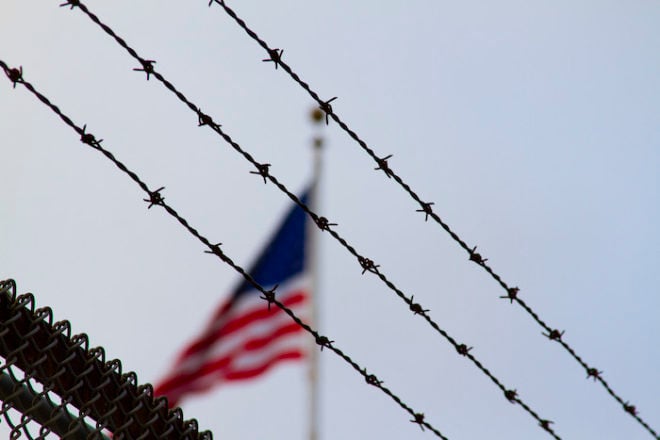
Under California law, if a person who knows they are infected with HIV has unprotected sex without telling their partner they have the virus, they can be convicted of a felony and face up to eight years of jail time. Intentional transmission of any other communicable disease — even a potentially deadly condition like hepatitis — is a misdemeanor. Photo: ShootingRichard.
SACRAMENTO — California laws — enacted in the 1980s and 90s at the height of the AIDS scare — that criminalize HIV are discriminatory, based on fear and ignorance — not science — and stigmatize people who have the chronic disease, said officials and experts who are working to change the laws.
For example, under current law, if a person who knows they are infected with HIV has condomless sex without telling their partner they have the virus, and they intend to transmit the virus, they can be convicted of a felony and face up to eight years of jail time. Intentional transmission of any other communicable disease — even a potentially deadly condition like hepatitis — is a misdemeanor.
Also under current law, an arrested HIV positive sex worker, who was HIV positive during a previous conviction, could face a felony offense regardless if any sexual activity or transmission happened. For example, they could face a felony offense if money is exchanged or if they are simply having a conversation or enter a vehicle.
“These laws are discriminatory, not based in science, and detrimental to our HIV prevention goals,” State Sen.Scott Wiener (D-San Francisco) said in a press statement. “It’s time to repeal these laws, use science-based approaches to reduce HIV transmission, instead of fear-based approaches, and stop discriminating against our HIV-positive neighbors.”
SB 239
Wiener has introduced a bill that will be discussed next week in the Senate’s Public Safety Committee, and it could be a game changer.
SB 239 will amend those California laws in several ways:
- It would make it a misdemeanor — instead of a felony — to intentionally expose someone to HIV
- It would repeal laws that require people convicted of prostitution for the first time to be tested for HIV
- It would repeal laws, such as Penal Code 647F, that allow a felony offense if the arrested sex worker tested positive for HIV in connection with a previous conviction
- It would allow re-sentencing or dismissal for people convicted under Penal Code 647f and require all records related to those convictions, arrests or charges be destroyed.
HIV CRIMINALIZATION
The law that criminalizes sex workers living with HIV does not require intent to transmit HIV or exposure to HIV.
Between 1988 and 2014, at least 800 people were arrested, charged or otherwise came into contact with the criminal justice system related to their HIV status, according to a study by the Williams Institute at the UCLA School of Law. Almost 400 people were convicted.
The study also found HIV criminalization laws disproportionately impacted women and people of color.
LAWS CAUSE HARM
These laws do nothing to further public health and, in fact, stigmatize people with HIV, discouraging testing or obtaining necessary medical care. The laws also reduce the likelihood of disclosure of a positive HIV status to sexual partners, experts said.
“These laws only serve to fuel the spread of HIV in our communities. They also disproportionately impact people of color and women,” APLA Health CEO Craig E. Thompson said in a press statement.
The laws also fuel stigma, violence and discrimination, said Naina Khanna, executive director of the Positive Women’s Network – USA. “Despite their claims to protect vulnerable communities, these laws actually cause further harm, both to people living with HIV and the broader public.”
If the bill is approved next week by the Public Safety Committee, it will need to be approved by the Appropriations Committee, full Senate and the Assembly before it reaches Gov. Jerry Brown’s desk. He would have until October 15 to take action on it.
The bill is co-sponsored by ACLU of California, APLA Health, Black AIDS Institute, Equality California, Lambda Legal and Positive Women’s Network – USA.
In addition, it is supported by Californians for HIV Criminalization Reform, a broad coalition of people living with HIV, HIV and health service providers, civil rights organizations and public health professionals: the Los Angeles LGBT Center, the Los Angeles HIV Law and Policy Project, the Transgender Law Center, Mexican American Legal Defense and Education Fund, the Free Speech Coalition, Sex Workers Outreach Project and Erotic Service Providers Legal, Education, and Research Project.
